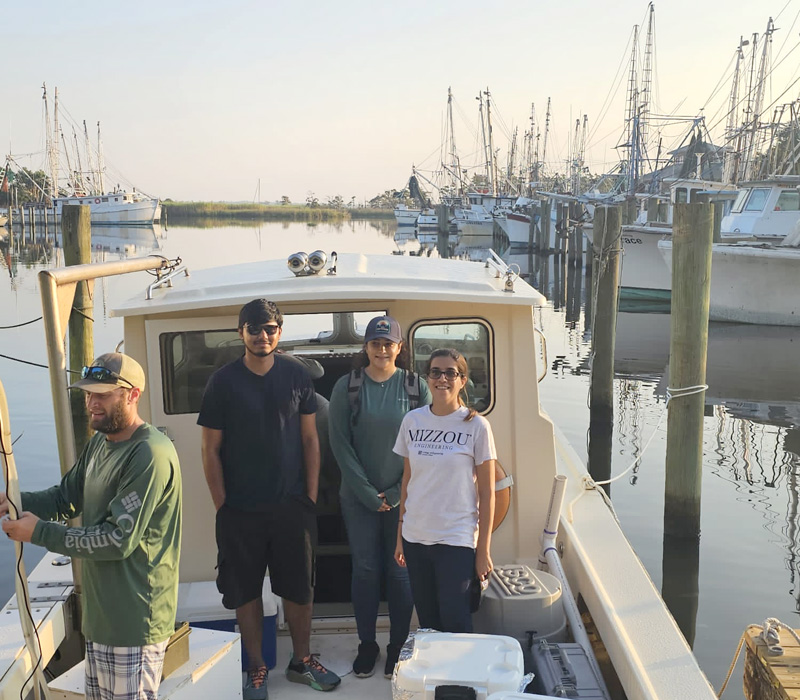December 03, 2023

With heavy rainfall and strong winds, hurricanes can alter the make-up of ecosystems, pushing salt water into freshwater bodies and disturbing sediment on the ocean floor. While this impacts water quality and disrupts aquatic life, the effects of hurricanes on water and sediment quality aren’t well understood.
Enter Maryam Salehi, an assistant professor of civil and environmental engineering at Mizzou. Salehi is an expert in the transport and fate of contaminants, including microplastic pollution.
Now, she’s collaborating with researchers in Florida to better understand how hurricanes alter the dynamics of water and sediment quality. The team has funding from a Grant for Rapid Response Research (RAPID) from the National Science Foundation for the project.
The work comes on the heels of Hurricane Idalia, a Category 3 hurricane that hit northern Florida on Aug. 23.
“Hurricane Idalia created a unique opportunity for us to study water quality and sediment quality variation following a hurricane,” Salehi said. “Despite the critical importance of water quality and sediment alterations on aquatic ecosystems and water safety, the consequence of hurricanes on water and sediment quality has been overlooked. Particularly, there is a lack of studies on emerging contaminants such as microplastics within coastal sediments and their reintroduction into coastal water following hurricanes.”
Days after Hurricane Idalia made landfall, Salehi and her team drove to Florida, where they collected samples both on land and by boat. Researchers also installed sensors and systems to continue to monitor conditions and collect samples as sediment begins to resettle in the environment.
“Our plan in this project is to monitor the sediment and water quality and determine the short- and long-term variation of sediment and water quality following hurricanes,” she said.
Specifically, researchers are studying estuarine systems—partially enclosed water bodies where freshwater mixes with salt water from the ocean—in the Apalachicola Bay in Northern Florida’s Gulf Coast.
Samples are collected every three weeks and sent to Salehi’s lab at Mizzou for testing.
“We’re looking at nutrients, heavy metals, organics and how microplastics are resuspended,” she said. “These details could be used later to develop predictive models for water and sediment quality alteration following hurricanes. That information could be used by decision makers to develop mitigation plans to prevent contamination in the event of future hurricanes.”
Salehi is collaborating with Ebrahim Ahmadisharaf and Nasrin Alamdari, both civil engineering faculty members at Florida A&M University-Florida State University. The team is also partnering with the Appalachian National Estuarine Research Reserve.
Learn more about civil and environmental engineering at Mizzou.